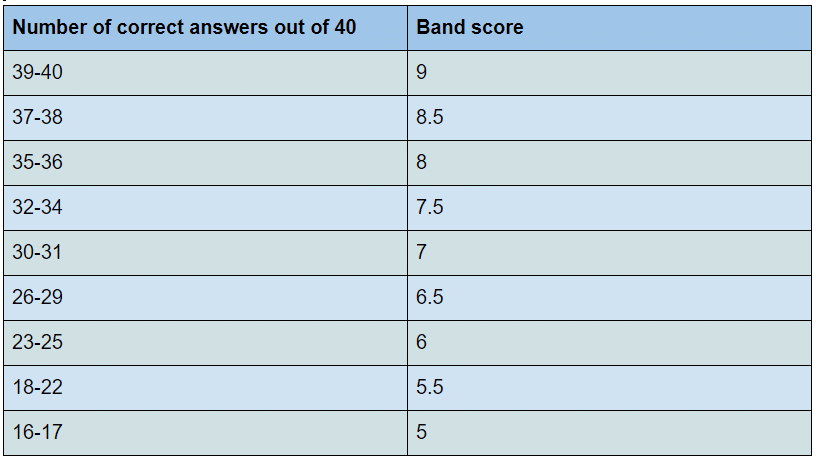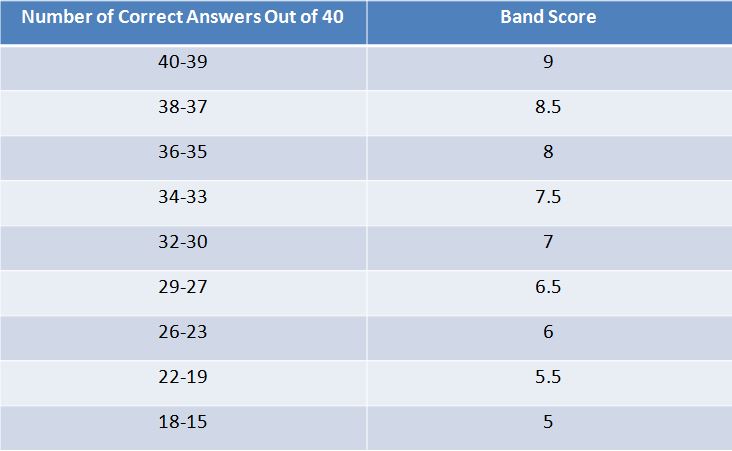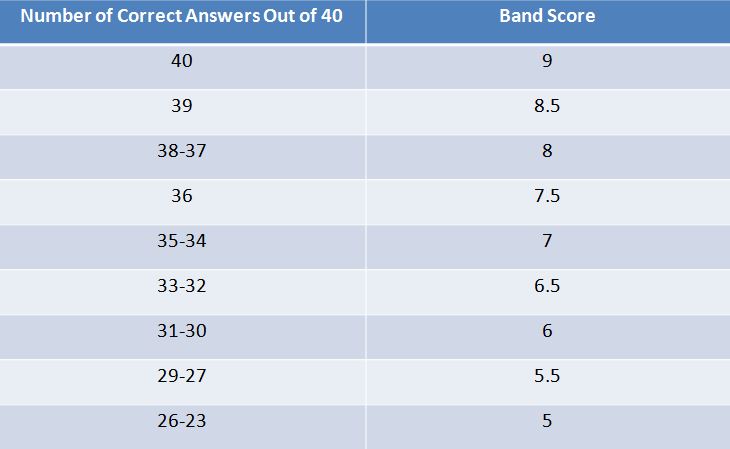IELTS is graded on a scale of 0-9. You will receive a score for Reading, Writing, Speaking and Listening. These scores are then averaged and this will give you your overall score. Scores are always rounded up to the nearest half score.
This article will show you what the different band scores mean, how examiners decide what score you get and how to understand your band score more fully.
Below is what the overall scores mean. I will only list 6-9 because if you are reading this article and understanding it, you will already be at least a 5.
IELTS Scores
Band 9– IELTS describes people who get Band 9 as ‘expert users’. This means that you have complete command of the language and you use it with complete accuracy and fluency. Very few people ever get to this level and, in fact, most learners do not need to get to this level.
A big misconception is that Band 9 means ‘perfect’. There is no such thing as the ‘perfect ‘ IELTS test and many Band 9 students make small mistakes during their Writing and Speaking tests.
Band 8– If you get a Band 8, IELTS considers you a ‘very good’ user of English. You may make a few mistakes when talking or writing about very unfamiliar situations, but overall, you have a very good grasp of the language. My best students normally reach this level.
If you are Band 8, you would have no problems living and working in an English-speaking country.
Band 7– These students are ‘good users.’ Most people who get Band 7 can cope with complex situations in English. If you are a Band 7 student you will make occasional mistakes, but you will be able to perform most everyday tasks without too many problems.
I believe this is the minimum level a person should be at if they want to study or work in an English-speaking country.
Band 6– IELTS describes these students as ‘competent’. Notice that the ones above it are described positively i.e. ‘good’ and ‘very good’, but this one is described in more neutral language. If you are Band 6 you can talk and write about familiar situations, such as your family or job, but you struggle to deal with more complex or unfamiliar topics.
This person makes frequent mistakes and can sometimes either misunderstand situations because of a lack of language or cause the listener/reader to misunderstand what they mean.
Writing Scores
Writing is judged using four criteria. The examiner will give you a score between 0-9 for each of the criteria and then give you an average overall score. For example, if you got 6, 7, 8, 6, your overall score would be 6.75 and this would be rounded up to 7.
The four criteria are:
1. Task Achievement
2. Coherence and Cohesion
3. Lexical Resource
4. Grammatical Range and Accuracy
One of the keys to getting a high score in writing is understanding what the four criteria mean. For a detailed article on what they mean and what you need to do to get higher scores, please visit this page.
Speaking Scores
Speaking also has four criteria that you will be assessed on. They are:
1. Fluency
2. Pronunciation
3. Lexical Resource
4. Grammatical Range and Accuracy
Again, it is essential that you understand what these mean. Click here for a detailed article on the speaking criteria.
Listening Scores
The listening test always has 40 questions and your score is based on how many of these 40 questions you get correct.
This is the same for both Academic and General Training.
Reading Scores
The reading test also has 40 questions and your score is again based on how many of these you get correct, however, the scores are different for Academic and General Training, as shown below.
Academic Reading
General Training Reading
Let me know if you have any questions about IELTS scores in the comments below.




